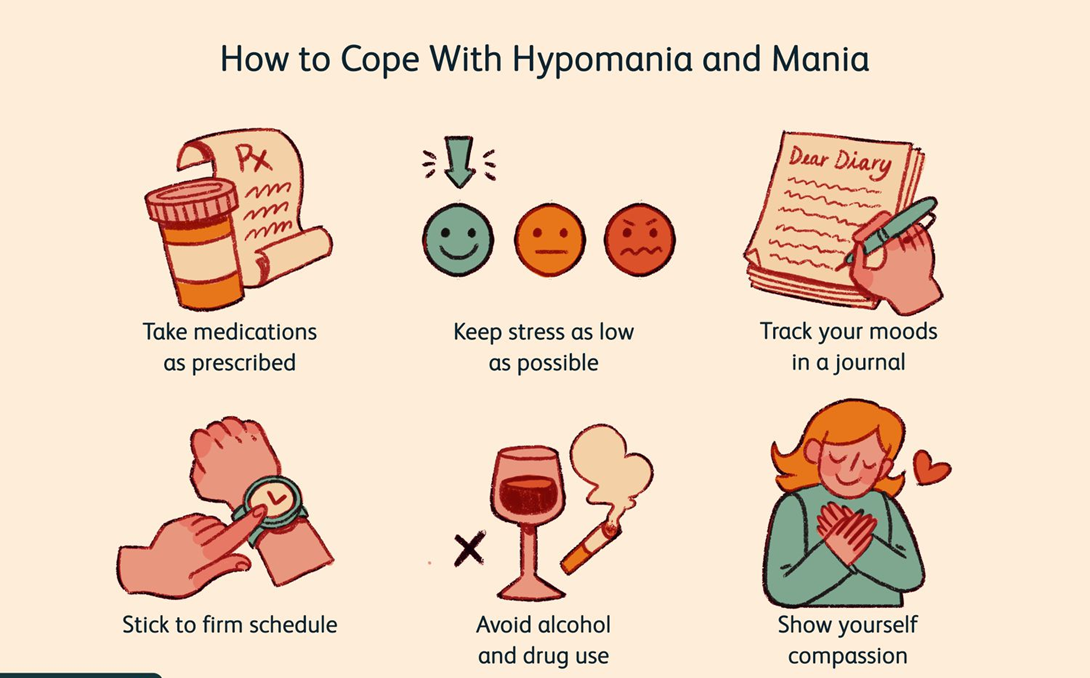A client with schizophrenia has had 2 hospitalizations within the past 9 months due to non-adherence to medications and their counseling plan. What measures should the nurse and the mental health treatment team recommend for tertiary prevention? (Select All That Apply)
Recommend the client distance themselves from people who knew them before their diagnosis.
Provide the client with a multi-step written plan to follow if auditory hallucinations occur.
Risperidone as a depot formulation every 2 weeks.
Increase white bread and bananas to help with anticholinergic symptoms.
Assist the client to enroll in a program of assertive community treatment.
Correct Answer : B,C,E
Choice A Reason:
Recommending the client distance themselves from people who knew them before their diagnosis is not a suitable measure for tertiary prevention. Tertiary prevention aims to reduce the impact of an ongoing illness by helping patients manage long-term, complex health problems and injuries. It focuses on improving quality of life and reducing symptoms. Distancing from familiar people could lead to social isolation, which might worsen the client’s condition.
Choice B Reason:
Providing the client with a multi-step written plan to follow if auditory hallucinations occur is a practical measure for tertiary prevention. This plan can help the client manage symptoms effectively and reduce the likelihood of hospitalization. It empowers the client to take control of their symptoms and provides clear steps to follow during a crisis, which can be crucial for maintaining stability.
Choice C Reason:
Risperidone as a depot formulation every 2 weeks is an effective measure for ensuring medication adherence in clients with schizophrenia. Depot formulations are long-acting injections that help maintain consistent medication levels in the body, reducing the risk of relapse due to missed doses. This approach is particularly beneficial for clients who have difficulty adhering to daily oral medication regimens.
Choice D Reason:
Increasing white bread and bananas to help with anticholinergic symptoms is not a recommended measure for managing schizophrenia. While diet can play a role in overall health, there is no evidence to suggest that these specific foods help with anticholinergic symptoms. Anticholinergic symptoms are typically managed with medications and other medical interventions.
Choice E Reason:
Assisting the client to enroll in a program of assertive community treatment (ACT) is a highly effective measure for tertiary prevention. ACT provides comprehensive, community-based psychiatric treatment, rehabilitation, and support to individuals with serious and persistent mental illnesses. This approach helps clients manage their symptoms, adhere to treatment plans, and reduce the risk of hospitalization by providing continuous, personalized care.
Nursing Test Bank
Naxlex Comprehensive Predictor Exams
Related Questions
Correct Answer is ["5"]
Explanation
Step-by-Step Calculation
Step 1: Identify the volume of one container in milliliters.
- 1 ounce = 29.5735 mL
- 6 ounces = 6 × 29.5735 mL = 177.441 mL
Step 2: Determine the total volume needed.
- Total volume needed = 850 mL
Step 3: Calculate the number of containers required.
- Number of containers = Total volume needed ÷ Volume of one container
- Number of containers = 850 mL ÷ 177.441 mL
Step 4: Perform the division.
- 850 mL ÷ 177.441 mL ≈ 4.79
Step 5: Round to the nearest whole number.
- 4.79 rounded to the nearest whole number = 5
Result: The minimum number of containers of juice needed is 5.
Final Answer: 5 containers
Correct Answer is A
Explanation
Choice A Reason:
Lorazepam is a benzodiazepine commonly used to manage acute agitation and anxiety. It works by enhancing the effect of the neurotransmitter GABA, which has a calming effect on the brain. Lorazepam is often administered in emergency situations to quickly reduce agitation and prevent escalation to violence. Its rapid onset of action makes it an ideal choice for managing acute episodes of agitation and potential assault.

Choice B Reason:
Valproic acid is an anticonvulsant and mood stabilizer used primarily for the treatment of epilepsy and bipolar disorder. While it can help manage mood swings and prevent manic episodes, it is not typically used for the immediate management of acute agitation or aggression. Its effects are not rapid enough to address an escalating situation effectively.
Choice C Reason:
Bupropion is an atypical antidepressant used to treat major depressive disorder and to support smoking cessation. It works by inhibiting the reuptake of norepinephrine and dopamine, but it does not have the sedative properties needed to manage acute agitation or aggression. Therefore, it is not suitable for immediate intervention in a potentially violent situation.
Choice D Reason:
Sertraline is a selective serotonin reuptake inhibitor (SSRI) used to treat depression, anxiety disorders, and other mood disorders. While it is effective for long-term management of anxiety and depression, it does not have the rapid calming effects required for managing acute agitation or potential assault. SSRIs generally take several weeks to achieve their full therapeutic effect.
Whether you are a student looking to ace your exams or a practicing nurse seeking to enhance your expertise , our nursing education contents will empower you with the confidence and competence to make a difference in the lives of patients and become a respected leader in the healthcare field.
Visit Naxlex, invest in your future and unlock endless possibilities with our unparalleled nursing education contents today
Report Wrong Answer on the Current Question
Do you disagree with the answer? If yes, what is your expected answer? Explain.
Kindly be descriptive with the issue you are facing.
